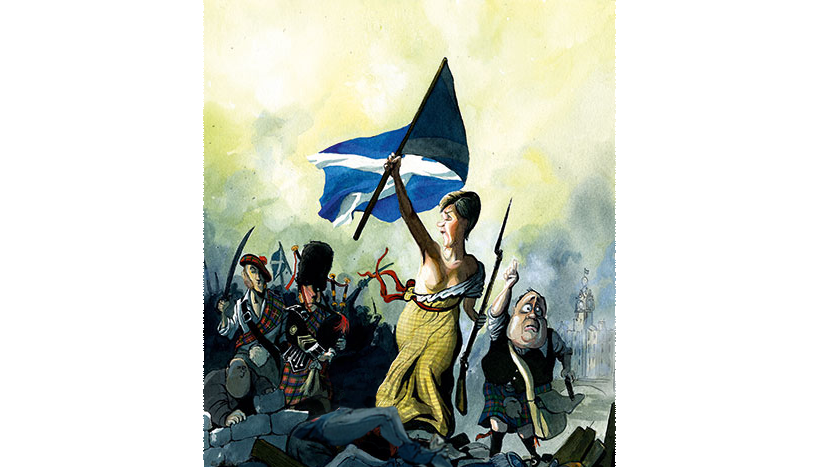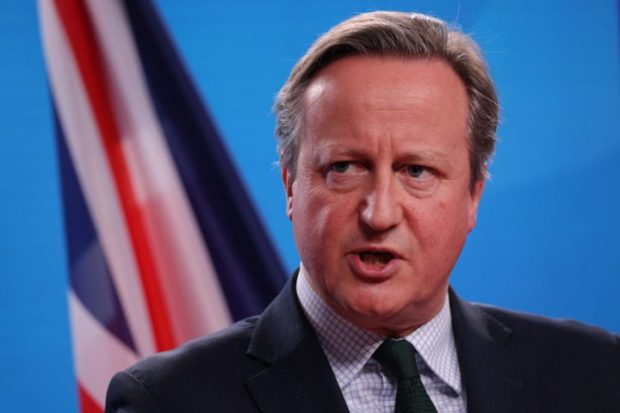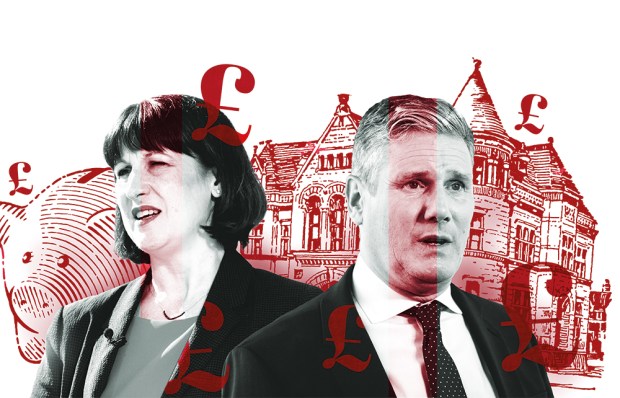The Scottish Tories are decidedly unenthusiastic about suggestions Westminster devolve further powers to the Scottish Parliament. A proposal to stave off independence by giving Holyrood additional financial powers and control over immigration, contained in a strategy memo leaked earlier this week, has been met with a chilly response from the party. I asked if they would be up for further devolution and got a blunt response from a party spokesman: ‘The Scottish Conservatives would not support more powers to the SNP.’
‘More powers’ has been the Tory mantra for almost a decade now, despite the original devolution settlement being expansive. David Cameron transferred further powers in 2012, then agreed to an independence referendum largely on the SNP’s terms. Despite his best efforts, the No campaign won that vote but, acting on promises hastily and foolishly made in the dying days of the plebiscite, Cameron handed over another slew of powers to Holyrood in 2016. His legacy is a devolved parliament in Edinburgh that boasts more powers than almost any sub-national legislature in the democratic world — and support for Scexit is at 58 per cent.
The Scottish Tories are right to dismiss further devolution. As a matter of political expediency, they face a very difficult Holyrood election next May and have to contend, on one side, with Sir Keir Starmer’s relative popularity among Scottish voters and, on the other, with a smattering of minor anti-independence parties standing for proportionally-elected list seats. None of these outfits will win a seat but, with a fair wind, they could take just enough ballots from Unionist voters to cost the Tories a seat here or there.
Scottish leader Douglas Ross, who sits in the Commons rather than the Scottish Parliament, cannot rely on a strong brand like Ruth Davidson or profile-raising clashes with Nicola Sturgeon at Holyrood. He needs to become better known but, until he does, he will want the Scottish Tories to retain their reputation as the natural home for pro-Union voters. Telling these electors to vote Scottish Conservative while a Conservative government at Westminster might be plotting to hand the SNP even more powers to undermine the Union is a non-starter.
The Scottish Tories also have to think beyond 2021. The Unionist alternatives standing next May lack the organisation, most likely the finances, undoubtedly the seriousness, and certainly the political and strategic nous to be more than an irritant for now. The danger for Douglas Ross and his colleagues is that a single, more effective outfit emerges to outflank the Tories on Unionism. If that seems unthinkable, remember that it was once unthinkable that the Tories could be seriously challenged for the mantle of Euroscepticism. It was only unthinkable until the voters began thinking it – and voting accordingly.
Electoral calculations aren’t the only consideration. There is a more fundamental point: every enhancement of the Scottish Parliament’s powers has not only failed to stem the separatist surge, but has hollowed out the constitutional settlement that existed prior to 1999. The Union has been so thoroughly gutted by both Labour and the Tories that a further round of devolution would take Holyrood so close to formal independence as to call into question the continuation of the Union. A parliament with powers over everything except defence and foreign affairs is a parliament for a country preparing to break away and cut its own path in the world. Scotland would share so little with England, Wales and Northern Ireland that the case against full autonomy would be reduced to ‘but who’ll pay for your defence?’. It’s not an unreasonable question but nor is it one around which an impassioned case for staying inside the UK can be constructed.
There are the ‘ach, well’ merchants, those who would greet independence with a practised sigh and world-weary ‘alas’, and how fulsome are their number in what passes for Unionism. Would that the independence movement was blessed with such pococurante partisans. The day is late and that cast of mind is yielding to dusk. The creed it enforces, that of ever-expanding devolution and ever-weakening union, has been tested to destruction and then some. A new strategy is needed and if neither Labour nor the Tories will adopt one willingly, a new party may well come along to force their hand.
Got something to add? Join the discussion and comment below.
Get 10 issues for just $10
Subscribe to The Spectator Australia today for the next 10 magazine issues, plus full online access, for just $10.




















Comments
Don't miss out
Join the conversation with other Spectator Australia readers. Subscribe to leave a comment.
SUBSCRIBEAlready a subscriber? Log in